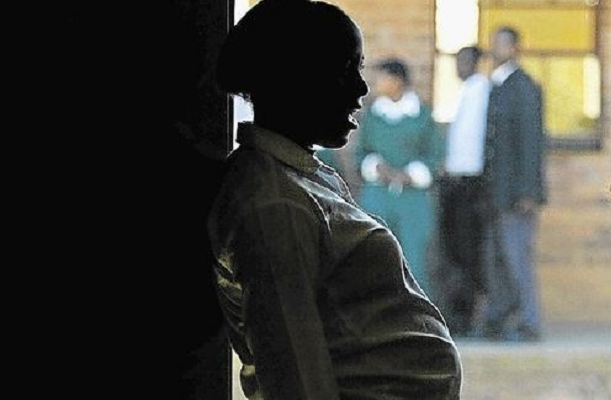Teenage pregnancy and motherhood is a major social and health issue in Ghana. Early teenage pregnancy can cause severe health problems for both the mother and child. An early start to childbearing greatly reduces women’s educational and employment opportunities and is associated with higher levels of fertility. Teenage pregnancy is defined as unintended pregnancy during adolescence. A female teenager can be pregnant as early as age 12 or 13.
In 2013, approximately 376,657 registered pregnancies in Ghana were registered to young women aged between 10 and 24. This represents 39 per cent of a total of 971,268 registered pregnancies countrywide. The rates of teenage pregnancy in Ghana are high; of all births registered in 2014, 30 per cent were by adolescents. The 2014 Demographic Health Survey indicates that 14 per cent of women aged 15 - 19 had begun childbearing, either having had a live birth (11%) or having become pregnant with their first child ( 3%). The increasing numbers of pregnant adolescents indicate the importance of addressing adolescent sexual reproductive health in Ghana.
The percentage of teenage women who have begun childbearing ranges from eight per cent in the Greater Accra Region to 22 per cent in the Volta Region. The Central Region has for the past three years been consistently ranked as the region with the second highest prevalence rate in teenage pregnancy in Ghana (GDHS, 2014).
To provide on-the-ground evidence in support of the issue being raised, data was obtained from the Regional Registry of the Department of Births and Deaths for analysis.
Causes of teenage pregnancy
The following were identified to be the major causes of teenage pregnancy in the region.
- Parental irresponsibility
- Poverty
- Lack of reproductive health and sex education
- Peer pressure
- Children’s irresponsibility
Consequences of teenage pregnancy
- Early pregnancy can be dangerous to the health of the mother and her unborn child. This is because very younger females may not be physiologically mature enough to give birth.
- Teenage girls stand the chance of dropping out of school or have delayed education.
- Unsafe abortion
- Perpetuation of the poverty cycle
Policy guidelines
The Government of Ghana believes that providing quality sexual and reproductive health services for adolescents and young adults will contribute immensely to the achievement of the overall goals of the National Population Policy.
The 1994 National Population Policy seeks to educate the youth on population matters which directly affect them, such as sexual relationships, fertility regulation, adolescent health, marriage and childbearing in order to guide them towards responsible parenthood and small family sizes.
The Adolescent Reproductive Health Policy also seeks to promote the health and welfare of young adults and communities as a component of socio-economic development. The policy provides a framework through which the reproductive health needs of young Ghanaians would be met. It is also meant to guide policy makers, programme managers and implementers of policies as they formulate, implement and evaluate programmes and services that address the sexual and reproductive health needs of adolescents and young people.
In one of its priority areas, The National Youth Policy envisages to improve the knowledge of the youth about preventive health care and to assist them avoid practices such as engaging in early and irresponsible sexual activities and exposing themselves to sexually transmitted diseases (STDS) such as HIV/AIDS.
The way forward/ suggestions
- Parents should be much more responsible in playing their parental roles by providing food, clothing, shelter, education and training.
- Parents should also make it a duty to discuss life in general, its joys and problems with their adolescent children, especially the girl-child, so that they could have a good view of what to expect in adult life.
- Religious groups also owe it a duty to provide guidance and counselling services to adolescents, young adults and parents on reproductive health that are consistent with their teachings and the spirit of national policies.
- Adolescents and teenagers should live responsible lives and take advantage of opportunities available to them for personal, socio-economic development and advancement.
It is evidently clear that the menace of teenage and adolescent pregnancy is far from over despite strategies, efforts and policies by governments and stakeholders to tackle the situation. It, therefore, requires continuous and concerted efforts by all stakeholders (parents, society and government) to help bring this phenomenon to the barest minimum before the situation gets out of hand.
The writers are with the National Population Council Secretariat, Central Region, Cape Coast.

